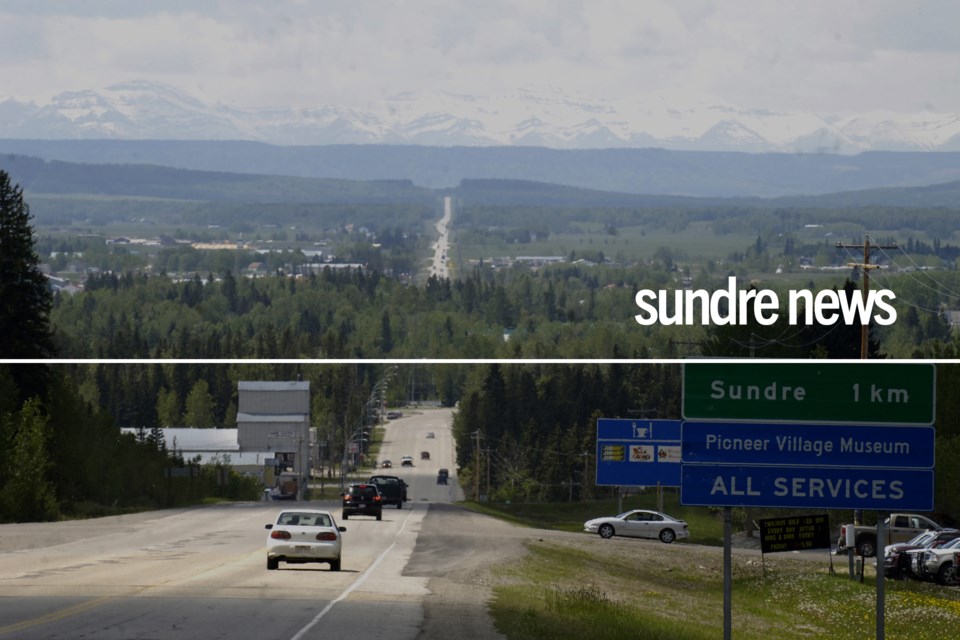SUNDRE - As the novel coronavirus continues to spread around the world, with 14 confirmed COVID-19 cases in Alberta, a Sundre physician says there is a screening strategy in place.
Dr. Michelle Warren said local physicians who are concerned a patient could be infected have access to testing kits.“We’re not swabbing people in the community right now,” she said.
“(But) we have a screening strategy in place.”
People with cold-like symptoms who do come in for a checkup will only be tested for the coronavirus if they’ve recently travelled somewhere with a high chance of exposure, or if they’ve been in contact with someone who has, she said.
While there is a rapid test for serious respiratory distress to determine whether someone has influenza, she said there is no rapid test yet readily available for COVID-19.
“The test kit we have is our routine viral swab. It’s not a specialized test for COVID.”
Swabbed samples from patients are sent to a lab in Edmonton, which does take some time to turn around. But samples can be expedited if there’s a legitimate concern that a patient has been infected with the coronavirus. In such a scenario, doctors will document where the patient has been and who they’ve been in contact with to ascertain the bug’s possible reach to minimize further spread, she said.
She said unfortunately, most people who end up catching the bug will likely still go to work. Symptoms such as a dry cough are similar to the common cold, which typically is not enough to convince many patients to stay home and recover, she said.
“Most people with a cold go to work. There are not many people who say, ‘I’ve got a cold, I’m not going to go to work,’” she said.
Meanwhile, they’ll continue spreading the virus around to others, some of whom might be more vulnerable to the bug. Elder citizens and those with weak immune systems are at much greater risk of developing more serious complications that could lead to shortness of breath or worse. In rare instances, even younger, healthier individuals sometimes develop serious symptoms as well. And even when a patient is recovering, he or she could still be spreading the disease, she said.
While the government has a major role to play, doctors also encourage employers to be accommodating of workers who start coming down with cold-like symptoms, she said.
“The worst thing that can be done is to send an employee to get a doctor’s note,” she said, adding everyone else in the clinic — including physicians, nurses, staff and other patients — end up exposed and potentially sick as a result.
“You’re doing a disservice to the community if you’re expecting them to leave their home just to get a sick note.”
Of course anyone who is extremely sick should see a doctor to be assessed, but patients will be told over the phone not to come in if their only purpose of visiting the clinic is to obtain a sick note, she said.
Other important preventive measures include frequently washing hands and avoiding touching one’s face. Throughout an average day, people often grab door handles and other potentially contaminated surfaces in public places, later going on to scratch their faces or push up their glasses, she said.
“That’s how the virus spreads.”
Furthermore, she said physicians are at this point not recommending the use of masks, which seem to prompt people to touch their faces even more as they frequently readjust the mask, offering a false sense of security.
While people should ideally cough or sneeze into a tissue, that’s not always possible. So at the least, an effort should be made to cough into one’s elbow, not hands, she said.
“I hope people are going to be wise and do what they can to control symptoms and stay home if they're sick so it doesn’t spread and numbers don’t go up.”
She also advises people to stock up on medicines like cold remedies.
When asked how serious she thinks the situation could become, Warren said, “It’s very fluid.”
Her primary concern is the coronavirus’s ability to overwhelm existing health-care resources. That’s what happened in Wuhan, China, where the disease first appeared, she said.
“The number of people who needed intensive care and intubation exceeded the number of beds they had for that.”
That’s cause for concern in a community that has a hospital with limited beds and where seniors represent such a high percentage of the population, she said.
“Those are the people at high risk for developing complications and potentially requiring hospitalization to help them pull through. We’ve only got a 14-bed hospital,” she said.
As observed from other jurisdictions around the world that are struggling to cope with the contagion, she said, “we can see how very quickly things would get overwhelmed,” not just in Sundre but across the province.
“If it hits with the same levels of infection as it did in Wuhan, we won’t have enough resources to accommodate everybody that needs it.”
Part of the response in Wuhan involved the rapid construction of two hospitals in a matter of weeks.
“I don’t know that Alberta Health can build two hospitals that quickly,” she said.



